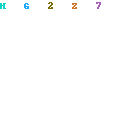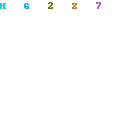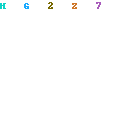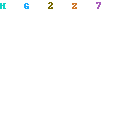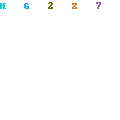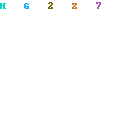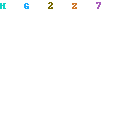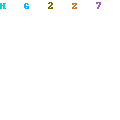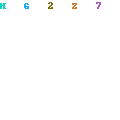The Israel-Arab Reader: A Documentary History of the Middle East Conflict, 7th Edition [Paperback]
Walter Laqueur (Editor), Barry Rubin (Editor)4.5 out of 5 stars See all reviews (13 customer reviews) | Like(2)
List Price:
$18.00
Editorial Reviews
Product Description
An essential resource—completely revised and updated for the sixtieth anniversary of the founding of Israel
In print for forty years , The Israel-Arab Reader is a thorough and up-to-date guide to the continuing crisis in the Middle East. It covers the full spectrum of the Israel-Arab conflict—including a new chapter recounting the Gaza withdrawal, the Hamas election victory, and the Lebanon-Israel War. Featuring a new introduction that provides an overview of the past 115 years of conflict, and arranged chronologically and without bias, this comprehensive reference includes speeches, letters, articles, timelines, and reports dealing with all the major interests in the area.
About the Author
Walter Laqueur, a professor of history and an expert commentator on international affairs, has written and edited more than twenty-five books.Barry Rubin is deputy director of the BESA Center for Strategic Studies and editor of the Middle East Review of International Affairs. He has written many books on Middle East politics.
Product Details
- Paperback: 640 pages
- Publisher: Penguin Books; 7 Rev Upd edition (April 29, 2008)
- Language: English
- ISBN-10: 0143113798
- ISBN-13: 978-0143113799
47 of 50 people found the following review helpful:
5.0 out of 5 stars The key documents, December 23, 2001
By
Alyssa A. Lappen (Earth) - See all my reviews
(TOP 500 REVIEWER) (VINE VOICE)
This review is from: The Israel-Arab Reader: A Documentary History of the Middle East Conflict: Sixth Revised and Updated Edition (Paperback)
Anyone who wants a truly honest vision of the Arab-Israeli conflict should consider this excellent 580-page Reader, last updated in 2001. It is divided into four sections each of which contains important writings from both sides (sometimes three or more) of the question and goes back more than a century.
The first, for example, runs from 1882 through the end of the British Mandate and includes 69 pages of writings, from the Bilu Group Manifesto, excerpts of Theodore Herzl's Jewish State and a 1905 French journal piece by Negib Azouri to the 1915 letter of Sir Henry McMahon to Hussein the Sherif of Mecca, the Peel Commission report, the US Special Committee on Palestine and the Partition Plan of the UN General Assembly.
The Third section runs from the Camp David Accords to Madrid, including statements from various commissions, the Arab League Jordanian Crown Prince Al-Hassan Bin Talal, and Lebanon and Israel's 1983 truce agreement. Also included is the Hamas charter, the Palestine National Council political resolution and declaration of independence of 1988 and Iraqi speech of Saddam Hussein as well as a 1991 U.S. letter of assurance to the Palestinians.
The Israel-Arab Reader's last section includes many Arab documents on Oslo and runs through 2001 statements by the Palestinian negotiating team and former President Bill Clinton.
It is hard to argue against reading important original documents, and forming your own opinion. Once you do, you will see many of the factors that have shaped the current Middle East as well as international and U.S. policy. Alyssa A. Lappen
Almost the Perfect Reference, July 8, 2003
By A Customer
This review is from: The Israel-Arab Reader: A Documentary History of the Middle East Conflict: Sixth Revised and Updated Edition (Paperback)
I will not spend a lot of time writing about how valuable a reference this is - the other reviewers on this site have already more than done it justice. Aside from the relative lack of material on early Zionism (also pointed out by one of the other reviewers), this book has most if not all of the relevant documents. I have only one major criticism (the reason I gave the book four stars instead of 5): the almost complete lack of information about the original sources. Apart from a one-liner preceding each document, no information is given regarding 1) the citation of the original work, including page numbers, where appropriate; 2) the language in which the original work was written; 3) if the work was not written in English, credit for the translation, the date thereof, etc. While these may not be of interest to the casual reader, to anyone doing research in the field, if only for a college paper, these details are critical. Furthermore, in an area as controversial as the Arab-Israeli conflict, the ability to trace documents back to the original and verify translations is everything.
One of the best handy Middle East references, October 18, 1997
By A Customer
This review is from: The Israel-Arab Reader: A Documentary History of the Middle East Conflict, Revised Edition (Paperback)
For any scholar or interested party in the Middle East conflict, this collection of primary source material is one of the best around although it can always afford to be updated. It is subtly "pro-Israel" in choice and emphasis but the material is real and finely assembled. There are of course, minor inaccuracies (Erskine Childers is listed as an English writer rather than an Irish writer and his personal and background credentials are ignored, perhaps because his essay is uncomfortably pro-Palestinian for the editors.) Still, buy this book no matter where your sympathies lie. The editors deserve the reward for a fine effort and a wealth of material will be at your fingertips..
